Search Images
Browse Content (p. 1292)
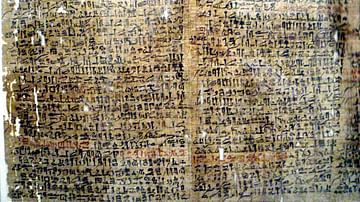
Image
The Westcar Papyrus (Detail)
Sheets of the Westcar Papyrus, Egyptian, date disputed. (Altes Museum, Berlin)
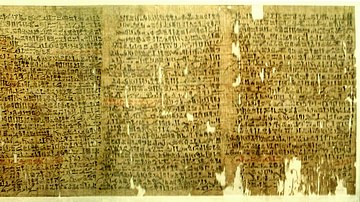
Image
The Westcar Papyrus
Sheets of the Westcar Papyrus, Egyptian, date disputed. (Altes Museum, Berlin)
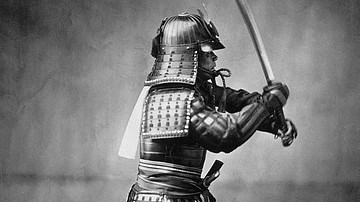
Image
Samurai
A photograph of a samurai warrior c. 1860 CE.

Image
Samurai on Horseback
A 16th century CE print showing a samurai on horseback. From the Night Attack on Yoshitsune.
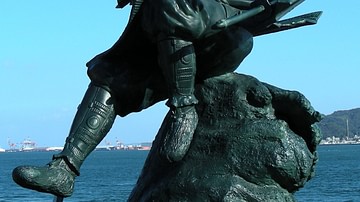
Image
Yoshitsune
A modern statue of the legendary samurai Yoshitsune (1159-1189 CE). Mimosusogawa Park, Shimonoseki, Japan.
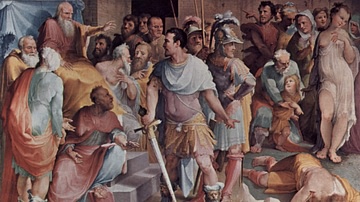
Image
Maelius Before Cincinnatus
Ahala, master of the horse, presents the dead Melius to Cincinnatus the Dictator. 16th-century fresco by Domenico Beccafumi in Palazzo Pubblico, Siena.
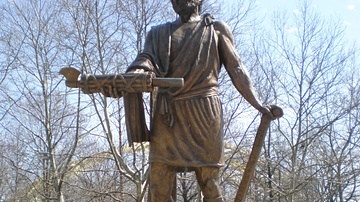
Image
Cincinnatus
Statue of Cincinnatus in Cincinnati, Ohio.

Image
Mount Fuji, Aerial View
Mount Fuji, Japan's highest mountain and a place of pilgrimage for followers of Shinto.
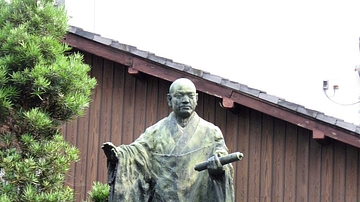
Image
Nichiren
A statue of Nichiren outside Honnoji temple on Teramachi.
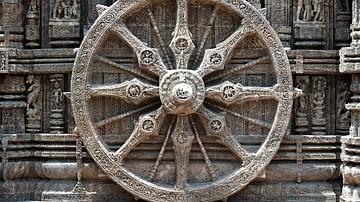
Image
Dharma Wheel
The Dharmachakra (Skt: wheel of the law with eight spokes) represents the Eightfold Path (Right View, Right Resolve, Right Speech, Right Actions, Right Occupation, Right Effort, Right Mindfulness, and Right Concentration). Konark Sun temple...